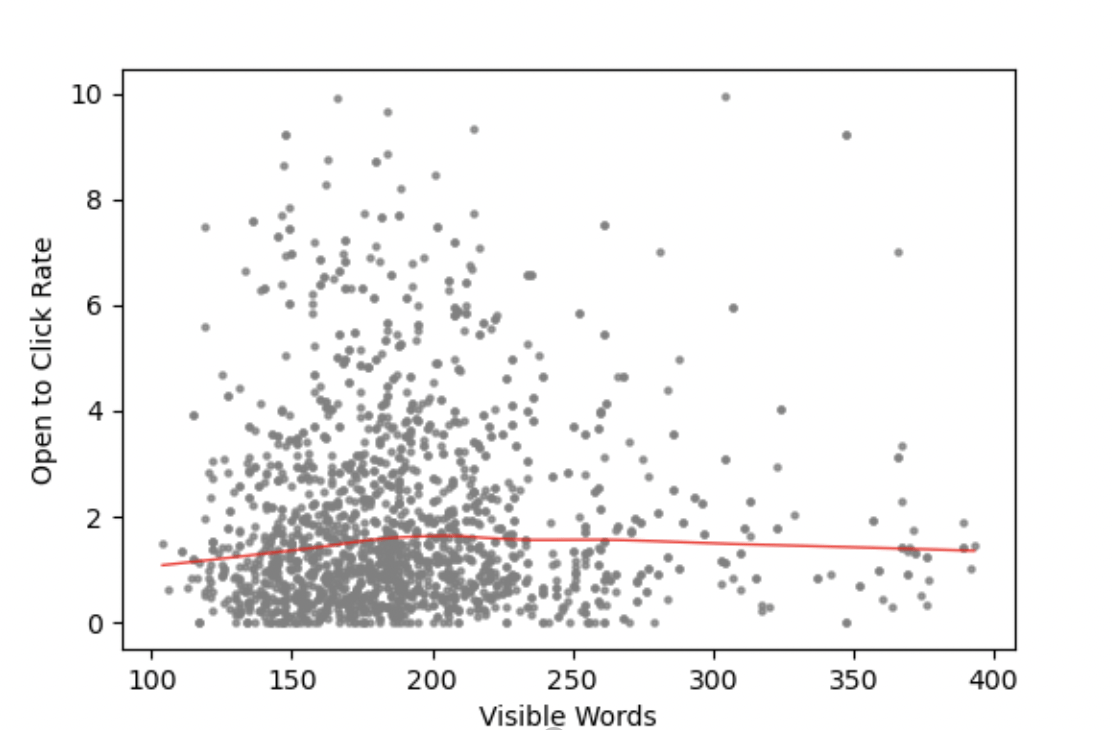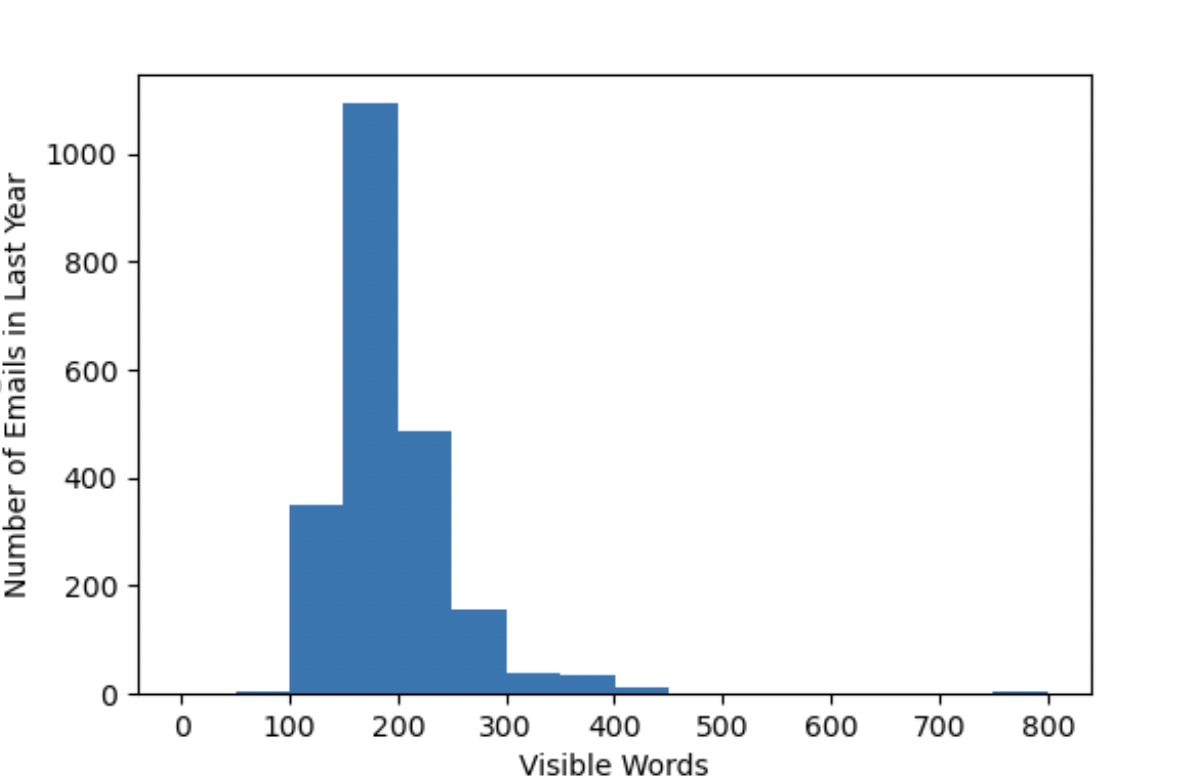When students open an email from your school, give them some substance to read. While it seems a long message will turn off a potential student, if an email is too short it may not provide enough information to be worth their attention.
The length of emails — defined as the number of visible words in an email, including header, body copy, signature and unsubscribe text — is not the most significant factor that affects open-to-click rates. Other factors are more important, such as differences in calls to action (apply vs. inquiry vs. yield), campaign type (triggered vs. scheduled vs. ad hoc), and audience (responders vs non-responders).
None-the-less, according to a recent study of 2,179 email campaigns conducted by Capture Higher Ed on behalf of its client institutions, the effect of email length is significant … even when controlling for the above factors as well as population type, institution and the number of links in each email.
According to the data, increasing from 110 words to 210 words leads to about a .6 percentage point increase in open-to-click rate. The median open-to-click rate was about 1.5 percent, so this represents a sizable lift.

The best-performing emails are in the 70th to 80th percentile in length, with between 205 and 219 visible words. So, the conclusion isn’t to write epics but to write emails 10 to 20 percent longer than we have been — more in that 200- to 220-word range.
Interestingly, the handful of emails with more than 700 words also performed well, but those were newsletters for an alumni audience.
Here’s what the distribution of emails has looked like over the last year. Instead of most emails being between 150 and 200 words, it would be better if most were between 200 and 250.

The takeaway: Emails with between 205 and 219 visible words perform the best in driving clicks after opens. This is about 10 to 20 percent longer than Capture’s average emails on behalf of clients. So, on average, we should be writing longer emails … with more in that range.
By John Foster, Data Scientist, Capture Higher Ed




